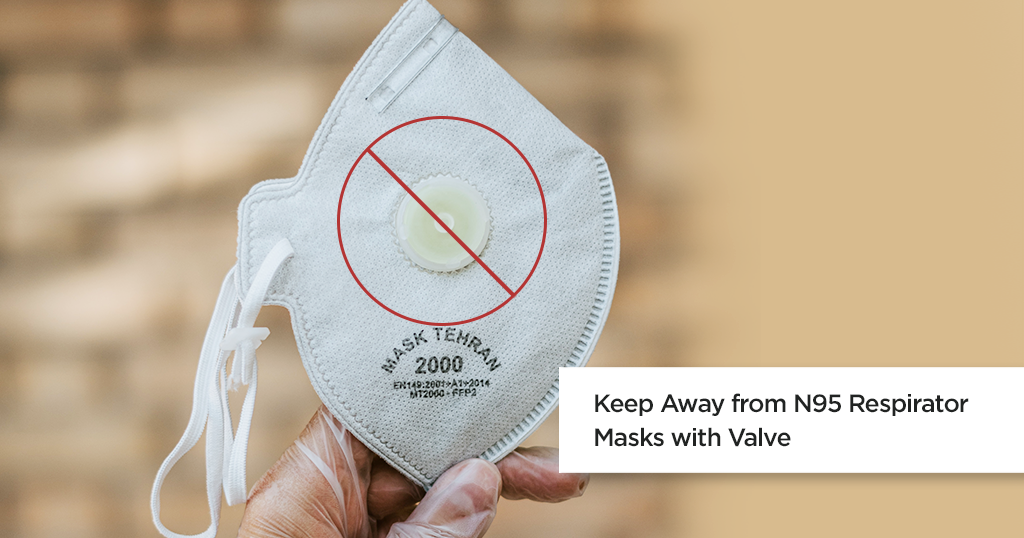To shop in a store or go out for any work, we all must now wear a face mask covering nose and mouth. But before you go out, check your mask.
If your mask has an external one-way respiratory valve (about the size of old rupee coin), the chances are that you could be barred from entry into any shops or stores, especially in hospitals and clinics.
The valves, found typically on some N95 respirator masks that make your breathing easier, may not be allowed. They are already not allowed in hospitals now
What is an N95 Respirator Mask?
Some N95 masks have a small plastic piece embedded in the fabric. It’s called a one-way valve, and such masks are also called N95 respirator mask. The one-way valve closes when you breathe in, so pathogens cannot get inside your body through it. However, this valve opens when you breathe out, creating a doorway for your exhalation to leave the mask.
Why are these masks not safe
Experts are now warning the general public against wearing N95 respirator masks with front valves. When you wear a mask with a one-way valve, most of our exhalations are entirely unfiltered. Therefore, while wearing such a mask, we are not filtering our breath that’s going out. It is as if our mouth is an open-air exhaust. And that’s not good for others.
With no filtration at all, the virus can easily be transmitted through such one-way valves. Besides, such masks are only going to protect the individual wearing it and does not protect anyone around them from potential exposure to virus particles they exhale.
Dr Sai Praveen Haranath, Consultant Pulmonologist & Critical Care Specialist from Apollo Hospitals, says, “You may unknowingly be wearing masks that do more harm than good in preventing the spread of COVID-19. Face masks with one-way valve on the front are not safe, and in fact, may actually propel your germs further.”
“Such types of valves permit droplet release from the mask, putting others at risk,” he further added
“In times when, ‘your mask should protect me and my mask should protect you; masks with valve virtually makes it impossible,” adds Dr Sai Praveen
What Masks Should Be Preferred?
The World Health Organization (WHO) recommends surgical masks for sanitation and health care workers who are not directly involved in managing COVID-19 patients. The surgical mask creates a barrier around the mouth and nose, but these masks should be discarded after a single-use. Masks made at home (preferably made of cotton fabric) that can be reused after washing is another option.
For healthy persons going out, cloth masks should offer some protection as such they will stop exposure to bigger droplets.
“But, the use of stoles and handkerchiefs can be avoided; these have too many leak points. Such face covers (stoles and handkerchiefs) will provide only psychological relief that the person is well aware about the need for precaution.” says Dr Sai Praveen
“Only cotton fabric has to be used to make masks,” he adds. “Cotton, apart from not being virus-friendly, is also a breathable fabric. And, it does not trap heat and humidity so much as well. Also, there are little chances of cotton-made mask getting wet easily. However, once such masks gets wet, we have to replace it; otherwise, it is not effective. Avoid nylon masks as it does not serve any purpose at all,” Dr Sai Praveen added.
Conclusion:
Face masks do not provide 100 per cent protection if you do not maintain physical distancing (at least six feet distance from others), cough etiquette and hand hygiene.


















